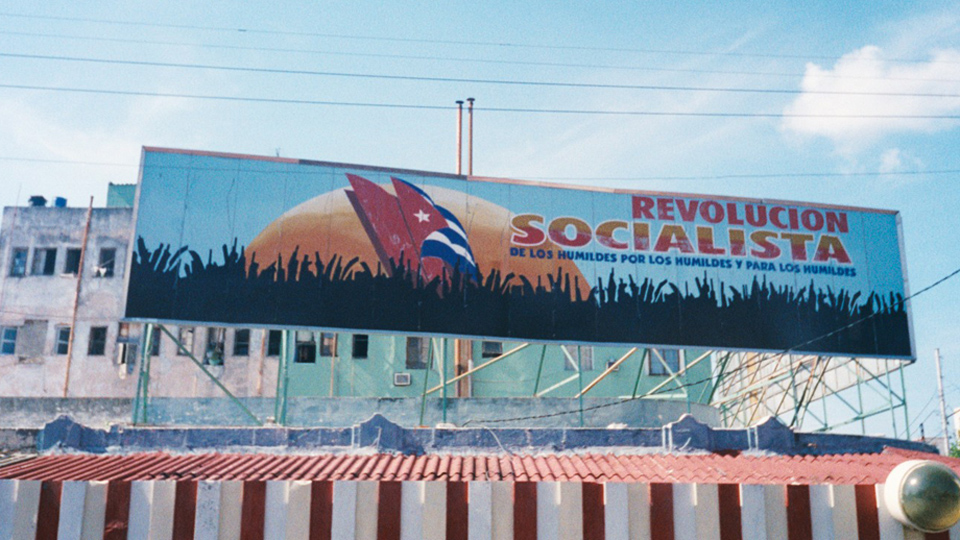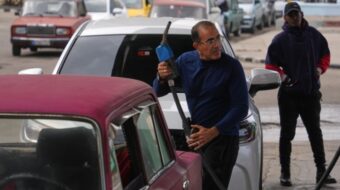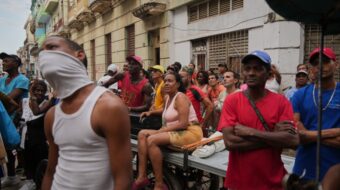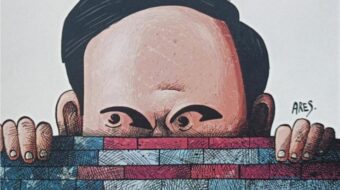
Secretary of State-designate Rex Tillerson has indicated he will advise President Trump to veto legislation ending the U. S. economic blockade against Cuba. “Our recent engagement with the government of Cuba,” he explained, “was not accompanied by any significant concessions on human rights. We have not held them accountable for their conduct.”
That Trump allies include anti-Cuban Miamians promises little good for eased U. S. relations with Cuba. Trump’s director of media affairs is Miami journalist Helen Aguirre, “a fierce opponent of the Cuban Revolution and Fidel Castro.” Transition–team advisors included Frank Calzón a former director of a political action committee that funds Cuba’s enemies in Congress, and an ex-official for the right-wing Cuban American National Foundation.
For Trump not to budge on easing the embargo (in Cuba called el bloqueo, “the blockade”), would represent continuity. Although former President Obama did seek Congressional action to end the blockade, his administration never introduced executive actions far reaching enough to deactivate important blockade regulations. The steps taken were trivial: U.S. credit cards are usable in Cuba now, certain telecommunications companies may operate in Cuba, and a Cuban anti-cancer drug is undergoing trials in the United States. In a first, U.S. authorities recently allowed Cuban charcoal worth a mere $17,000 to be imported.
The U.S. Treasury Department in January 2017 announced that the Alliance for a Responsible Cuba Policy, a Tampa–based non–profit group, and Canada’s Toronto Dominion Bank would pays fines of $10,000 and $955,750, respectively, for violating blockade rules. During two years of improving binational relations, the U. S. government levied $ 2.8 billion in fines against seven U.S. and four third country entities.
Allegations that human rights are violated in Cuba serves as one pretext for preserving the blockade. Trump administration supporters also object to Cuba’s refusal to pay reparations to U. S. citizens who lost properties due to nationalization. In 1960, for example, Cuba nationalized American-owned Cuban oil refineries without compensation. Negotiations on reparations are at an impasse; Cuba is meeting U.S. claims amounting to $4.1 billion with claims of $181 billion for losses caused by the U.S. embargo.
Cuba has another bill to submit. Historian Louis Perez speculated recently that Cuba could seek satisfaction for damages stemming from “economic sabotage and subversion” occurring in the 1960s. He quotes a U.S. official of that era: “As an economic weapon, [sabotage] is designed to supplement and support the overall economic denial program by damaging economically important installations and to add to Castro’s economic problems.” The CIA and U.S. military personnel targeted electric power grids, facilities for the “production and distribution of petroleum,” transportation infrastructure, and food sources.
To recall the U. S. sabotage campaigns against Cuba is to return to the economic blockade: each one represents the use of force for foreign policy purposes. As long as the U.S. government perceives that its justification for imposing force still exists, the blockade will not disappear.
A Defense Department strategy plan released in 1992, and approved by the National Security Council, highlights U. S. reliance on force. Authors of the plan proclaimed that “the world order is ultimately backed by the U.S.” “Both Cuba and North Korea,” they note, “seem to be entering periods of intense crisis—primarily economic, but also political—which may lead the governments involved to take actions that would otherwise seem irrational.” The reporter observes that, “America’s political and military mission in the post-cold-war era will be to insure that no rival superpower is allowed to emerge.”
What Chinese academician Jiao Shixin wrote in 2015 about China applies to Cuba now. “The strategic goal or intention behind the engagement strategy [with China],” he suggests, “has been to shape China by bringing it into an international system and international order that is dominated by the US, and then pressure China to conform to America’s vision for it. [There are] two aspects: the first is to establish American-style democracy in China — to change China from the inside; the second is to bring China into the post-WWII international system … to tame China from the outside to conform to the strategic interests of the United States.”
His analysis fits for Cuba once the word “China” is replaced with “Cuba.” It becomes a useful commentary on current the U.S. government’s strategic thinking about Cuba. And it puts the U. S. approach on Cuba into a worldwide context.
Force applied to Cuba differs from harsh measures taken against China. Tiny Cuba, a socialist nation, remains outside the U.S. “international system,” and the more so because, unvanquished, it fights a battle of ideas. That system requires enforcement mechanisms, as per that Defense Department document of 1992. U.S. strategists pragmatically may determine that harsh measures sometimes don’t work. Thus in Cuba, sabotage and terror disappeared. What remains, short of military invasion, is economic blockade.
Historian Perez and others have shown that U.S. purposes in Cuba haven’t changed in almost 200 years. The ultimate object there and elsewhere is to foster trade relationships and investments that permit wealth accumulation. For that to happen, imperialist United States has to dominate and be ready to enforce its long reach. To think that a billionaire U.S. president heading that “international system” might abandon the blockade doesn’t make sense.










